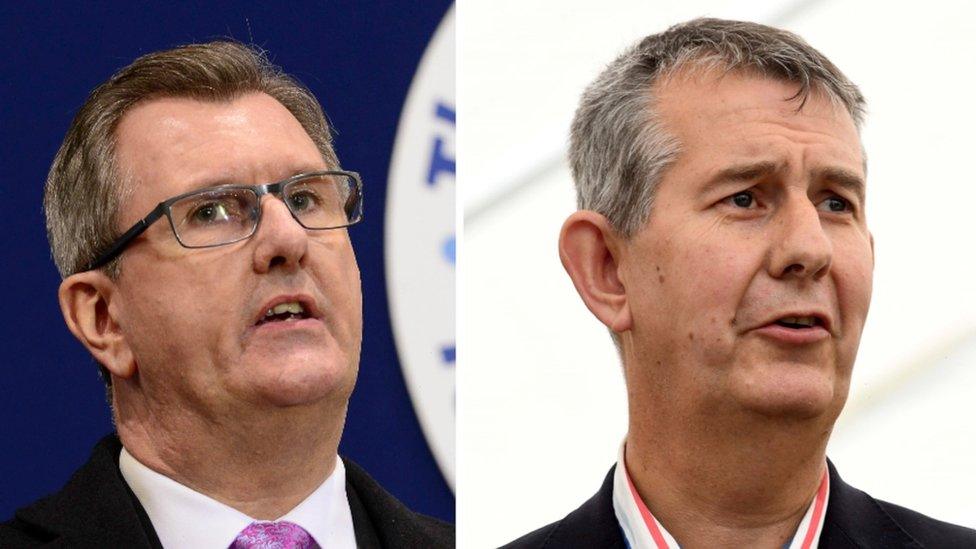DUP: Sir Jeffrey Donaldson enters leadership contest
- Published
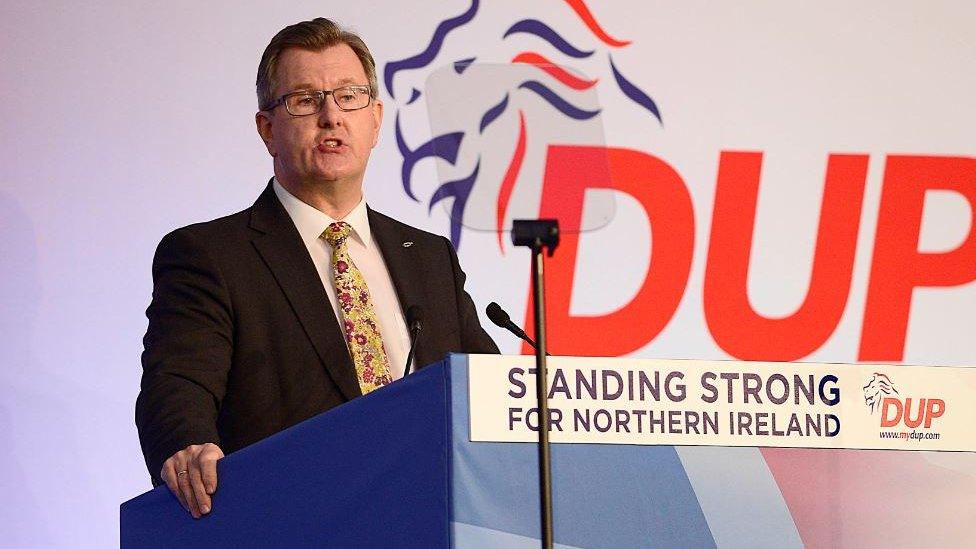
Sir Jeffrey Donaldson entered the race on the date of Northern Ireland's centenary
Sir Jeffrey Donaldson has entered the race to become the next leader of the Democratic Unionist Party (DUP).
There is now a leadership contest for the first time in the party's 50-year history as Sir Jeffrey takes on Agriculture Minister Edwin Poots.
Launching his leadership bid, Sir Jeffrey said he was convinced Northern Ireland's "best days are ahead".
Arlene Foster is to step down as party leader at the end of May and quit as first minister at the end of June.
Mrs Foster announced her decision to resign after facing a revolt from DUP members last week.
Sir Jeffrey publicly began his bid for leadership on Monday, the 100th anniversary of the formation of Northern Ireland.
'Politics of persuasion'
The Lagan Valley MP first praised the work of the party's outgoing leader, saying Mrs Foster had shown "great courage and conviction and a big heart for Northern Ireland".
He said he was convinced that as Northern Ireland enters its second century the "best days are ahead of us".
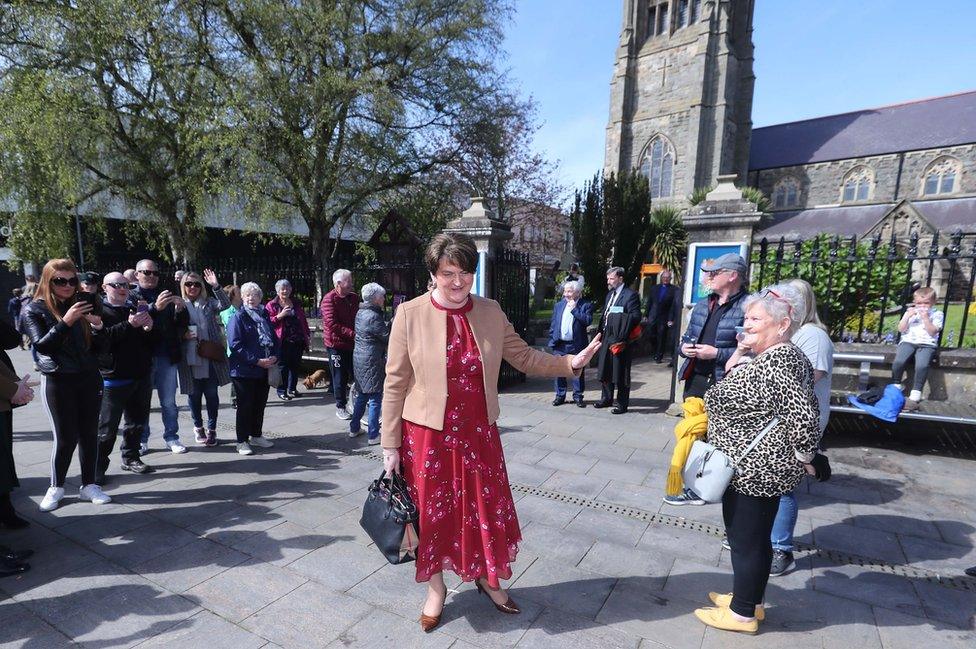
Arlene Foster spoke to well-wishers after a church service in Coleraine on Sunday to mark the centenary of Northern Ireland
Sir Jeffrey said he wanted to build a "shared future for Northern Ireland where everyone, regardless of their background, has a part to play in showing the world what we are capable of".
He said the next century would be built on "the politics of persuasion" and that would need "positive leadership, strategy and values".
BBC News NI understands that Education Minister Peter Weir will support Sir Jeffrey in his leadership bid.
Sir Jeffrey also has the support of fellow MPs Gavin Robinson and Jim Shannon and Junior Minister Gordon Lyons.


Sources close to Sir Jeffrey described support he has received from within the party so far as "more than encouraging".
His leadership bid means for the first time there will be a formal contest, not a coronation, to become DUP leader.
Edwin Poots has already hit the ground running with his campaign.
It could be a very close race.
To make matters more interesting both politicians share not just the same constituency of Lagan Valley but an office building too.

Sir Jeffrey had earlier written to his DUP colleagues confirming he would enter the contest to lead the party.
He told the party's Stormont assembly members (MLAs) and MPs that he wanted to inform them ahead of his public announcement.
In his letter, the veteran MP acknowledged the problems the DUP was facing, saying it had been a "very difficult period for our party".
"It grieves me to see divisions, especially when they are played out on the public stage," wrote Sir Jeffrey.
"We deliver best when we are pulling together, not apart."
"Our actions and party positions are often misunderstood and fail to get through to those we rely on to elect us.
"All too often you bear the brunt on the frontline."
He also told his colleagues: "While we continue to communicate through the media and on social media, I want to spend more time on the ground listening to our party members and the wider community on the issues that matter to them."
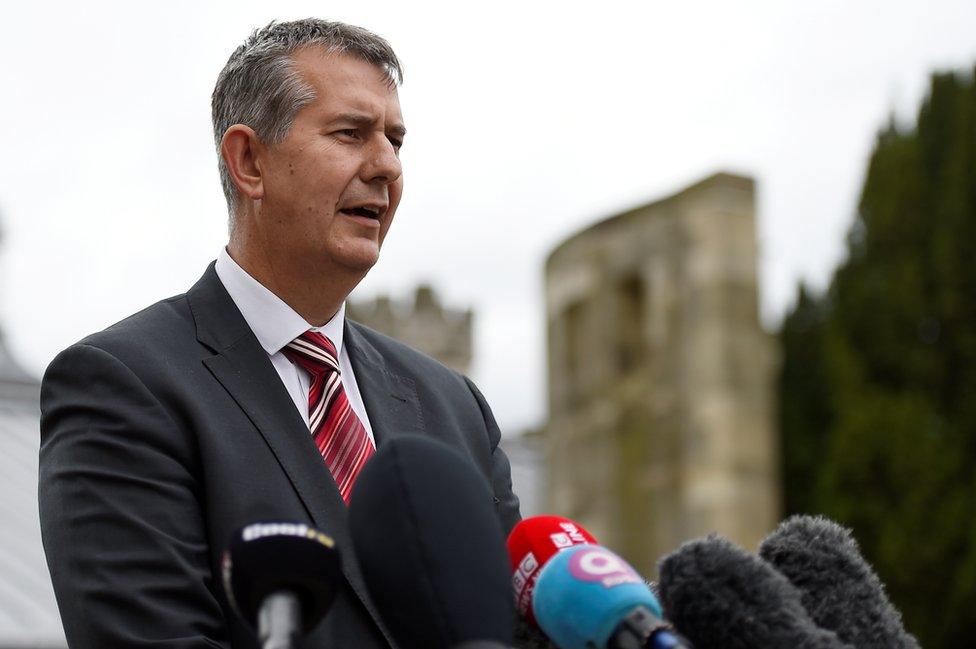
Edwin Poots said he would not take up the post of first minister
Mr Poots declared last week that he would run for the DUP leadership.
If successful, he would split the role of party leader from first minister with MLAs being consulted about the ministerial team.
In a statement to the Sunday Life, external, Mr Poots' campaign team said the role of leader would involve rebuilding the party's core.
BBC News NI understands that Mr Poots would want to remain agriculture minister if he wins the party leadership.
At the weekend, his campaign manager Paul Frew MLA said Mr Poots had received the backing of the majority of the party's MPs and MLAs who make up the electoral college.
Sir Jeffrey has also received a significant number of endorsements, according to his team.
In order to become party leader, the winning candidate will need to secure the support of at least 18 of the party's MLAs and MPs.
- Published2 May 2021
- Published30 April 2021
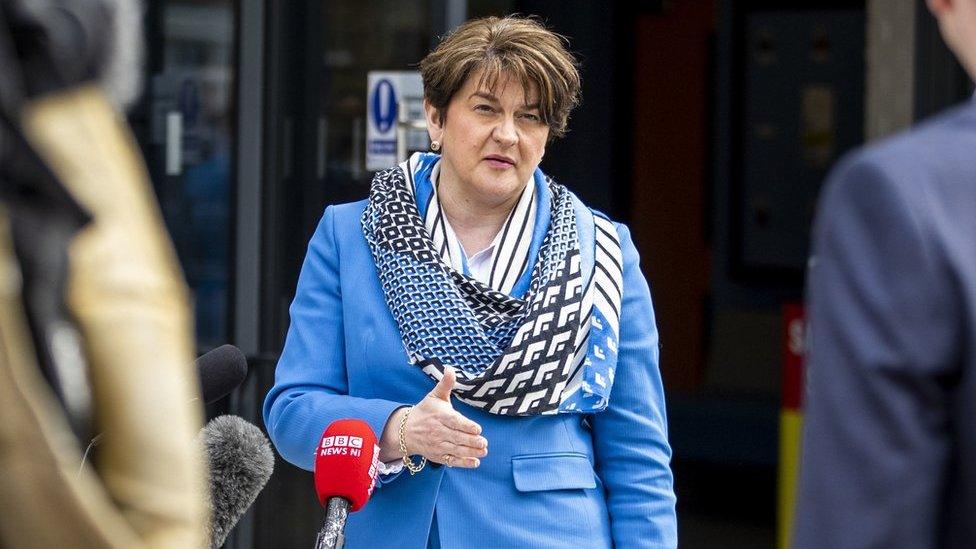
- Published1 May 2021
